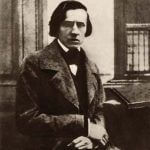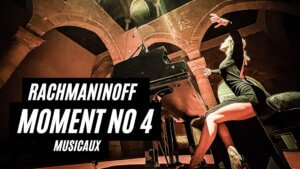Chopin Nocturne No 20: The Darkest Hour Occurs Immediately Before the Dawn
Frederic Chopin composed no fewer than 21 nocturnes over the course of his career and some would argue that his Nocturne in C# Minor Opus 20 is one of the most famous. Hauntingly melancholic and interspersed with a host of melodic flavours, this nocturne echoes a synergy of delicate beauty alongside what some would call an unspeakable sadness. This piece particularly resonated with me due to the fact that it was featured in the 2002 Roman Polanski film The Pianist. This non-fictional work followed the life of Polish composer Wladyslaw Szpilman during his bid to stay alive in Nazi-occupied Warsaw. He actually played this piece for a German officer by the name of Wilm Hosenfeld in return for food, clothing and advice on how to survive. Therefore, I consider Nocturne No 20 to represent an interesting combination of desperation and hope.
Nocturne No 20: A Practice in Subtlety
 When compared to some of his other works, we would first believe that Nocturne No 20 is relatively easy to play due to its rather slow tempo. However, much lies between the notes and as is characteristic of Chopin, a great deal of care must be taken in order to correctly interpret the innate emotions within the score. One of the main considerations is that this song requires me to adopt a cantabile touch; almost as if I were singing the notes. The ability to correctly “hear” such nuances is key in order for the song to be executed correctly. This is quite a challenge even for pianists with a great deal of skill and the slow tempo of the song belies this technical quality.
When compared to some of his other works, we would first believe that Nocturne No 20 is relatively easy to play due to its rather slow tempo. However, much lies between the notes and as is characteristic of Chopin, a great deal of care must be taken in order to correctly interpret the innate emotions within the score. One of the main considerations is that this song requires me to adopt a cantabile touch; almost as if I were singing the notes. The ability to correctly “hear” such nuances is key in order for the song to be executed correctly. This is quite a challenge even for pianists with a great deal of skill and the slow tempo of the song belies this technical quality.
Nocturne No 20: Reading Between the Lines
[embedyt] https://www.youtube.com/watch?v=pOMPsgUsx14[/embedyt]
When I play this piece, I often wonder what feelings Chopin was experiencing. He was most certainly not thinking about the technical challenges faced by future generations. Perhaps he was transcribing his own lamentations of the Russians invading Poland during his lifetime? I like to believe so, for his use of a Picardy Third at the very end signals a sharp contrast to the gloom associated with much of the piece. This melodic departure signals hope; another sentiment often better expressed with music than through words alone. My heart undertakes this very same journey every time Chopin emerges when I play Nocturne No 20.



